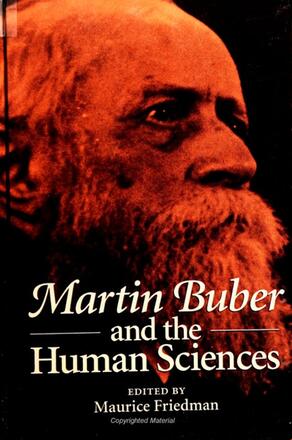
Martin Buber and the Human Sciences
Alternative formats available from:
This is the first book on Buber to address the full scope of his seminal influence for any number of thinkers and fields from philosophy to psychotherapy to literary theory.
Description
The specific focus of Martin Buber and the Human Sciences is "dialogue" as the foundation of and integrating factor in the human sciences, using dialogue in the special sense which Buber has made famous: mutuality, presentness, openness, meeting the other in his or her uniqueness and not just as a content for one's own thought categories, and knowing as deriving in the first instance from mutual contact rather than knowledge of a subject about an object. By the "human sciences" the authors/editors mean material that can be meaningfully approached in a dialogic way, hence, the humanities, education, psychology, speech communication, anthropology, history, sociology, and economics. The essays in Martin Buber and the Human Sciences demonstrate that thirty years after Buber's death his influence is still resonating in many countries and in many fields.
Maurice Friedman is the world's foremost authority on Martin Buber. His three volume critical biography, Martin Buber's Life and Work was the recipient of the National Jewish Book Award in 1995. In addition, he is the author of three other books on Buber, editor, translator, and introducer of a dozen of Buber's works, and principal editor of The Philosophy of Martin Buber volume of The Library of Living Philosophers. He is Professor Emeritus of Religious Studies, Philosophy, and Comparative Literature at San Diego State University and Co-Director of the Institute for Dialogical Psychotherapy.
Reviews
"This book is timely/past due for a current follow up source to identify the influences of this major twentieth-century thinker on his successors. I found the book hard to put down—despite coming across my desk at a busy end of term. Clearly Buber's influence has been acknowledged within individual academic disciplines, clearly as a seminal thinker his influence should be widespread in principle. A current and accessible single volume such as this that demonstrates the breadth of his impact is most welcome and valuable.
I have been looking for a work of this sort for some time. I was delighted at the fresh breath presented by so many of the authors. " — Elliott M. Levine, University of Winnipeg
"The papers included in this volume attest to the very wide range of human concerns for which the work of Martin Buber continues to have seminal importance and provocative implications. What is most interesting is the extraordinary range of topics addressed in the collection, under the rubric of 'the human sciences. ' The elucidation of that term is itself an important contribution, and Friedman's discussion/explanation of the term in his essay is essential. " — Donald L. Berry, Colgate University